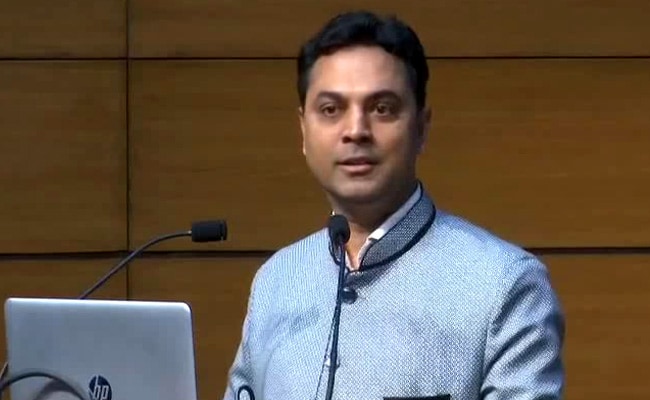[ad_1]

India expects 11% growth in the next financial year, Chief Economic Adviser K Subramanian said.
New Delhi:
India’s Chief Economic Adviser K Subramanian on Friday drew examples from popular culture to illustrate conclusions in the national Economic Survey, a policy document on the state of economy that underpins the drafting of the annual budget due next week.
Dropping references from the 2009 blockbuster ‘3 Idiots’ and the much-loved TV series ‘Malgudi Days’ from the late 1980s, Mr Subramanian tried to highlight the need for increasing health expenditure and focusing on economic growth to tackle poverty.
“I am sure everyone here has watched the movie 3 Idiots. If there is someone here who hasn’t seen it, you can raise your hand,” he said during his presentation on Friday explaining the Economic Survey that is prepared by his team at the finance ministry.
“I am going to focus on this scene from 3 Idiots where Farhan and Rancho go to have dinner at Raju’s place. When they are having dinner, Raju’s mother talks about how a large part of her salary goes into the medical expenses of Raju’s father,” Mr Subramanian said.
“And then she laments because such a big share of her salary goes into the health expenditure, there isn’t enough money let for household spending, let alone prepare for Raju’s sister’s wedding. This particular scene, albeit displayed in a darkly humorous manner is representative of a situation that many families in India may face themselves because if high out-of-pocket expenses on health,” he said.
Explaining the link between government spending on healthcare and the share of an average family’s finances, Mr Subramanian said, “What is really important here is the non-linearity in this effect. A small levels of public spending on healthcare, when you increase it even by a little bit, the impact on out-of-pocket expenses is very large.”
“If India were to move [health expenditure] from what it currently is to 2.5 per cent of the general government expenditure, the decline in the out-of-pocket expenditure for households that are similar to Raju’s family will be very large. It will come down from about 60 per cent to 30 per cent. That is more than half and will make a big difference to these families,” he said.

The Chief Economic Adviser also took to Malgudi Days to suggest economic growth is a better solution to ending poverty than just redistribution.
“Remember Swamy from Malgudi Days? Swamy is very good at mathematics. Swamy gets 100 out of 100 in his mathematics exam. His friend Shankar gets only 60 out of 100. His headmaster takes 20 marks away from Swamy and gives it to Shankar and tells Swamy that I do not like this difference in outcomes. I want both of you to have 80 marks and therefore I did this,” he said.
“Do you think this equality that was achieved was desirable? Given the level of development India is in, India must continue to focus on growth so that it expands the pie which enables redistributive policies to lift people out of poverty,” Mr Subramanian said.
India’s annual economic survey this year forecast robust economic growth of 11 per cent for the fiscal year beginning on April 1 on the back of the beginning of a nationwide coronavirus vaccination drive and a rebound in consumer demand.
The survey’s projections, which predicted a “V-shaped” economic recovery but cautioned that it would take at least two years to revert to pre-pandemic gross domestic levels, form the basis for key figures in the budget, due to be delivered on Monday by Finance Minister Nirmala Sitharaman.
[ad_2]
Source link